Lifestyle ≠ Liberation
“Lifestyle” has always been a marketing con. Glossy magazines, Instagram reels, curated “shelfies.” Buy the right blender, the right yoga pants, the right capsule wardrobe — voilà, instant identity.
But lifestyle as a product is nothing new. The very idea was invented and perfected by magazines in the 20th century, from Good Housekeeping to Martha Stewart, teaching people that identity could be purchased through table settings and matching curtains. Fast forward and we’ve got Gwyneth Paltrow’s Goop selling “clean living” for the cost of rent, and influencers building entire empires out of colour-coded pantries. The marketing machine has convinced us that life itself is something you can order online and unbox.
Here’s the truth: lifestyle isn’t what you buy, it’s how you live. And the way we live right now — wasteful, extractive, fast — is built to burn us out and burn the planet down.
The climate crisis rips the wig off the performance. No stack of influencer-approved coffee table books can fix a system engineered for waste: cheap energy, fast fashion, car dependency, disposable everything.
Reimagining lifestyle with eco-friendly innovations isn’t about shiny gadgets or guilt-tripping. It’s about refusing the defaults. Designing a daily life that siphons fewer resources into the capitalist furnace — and leaves you freer, lighter, less in debt to a system that never pays you back.
“Lifestyle isn’t a Pinterest board — it’s the hidden systems that quietly decide how resources flow through your life.”
Your Home Is a Machine, Not a Showroom
Forget the HGTV fantasy. Your home isn’t a showroom, it’s a machine. And most of our machines leak: heat, water, money, energy.
The truth is, boring fixes matter more than trendy ones. A roll of insulation tape will save you more energy than a $400 “sustainable” throw blanket. Renters can hack it with draft snakes, heavy curtains, or DIY window film. Homeowners can go deeper: attic insulation, basement sealing, energy audits. None of it is sexy, but all of it shrinks bills and footprints.
- Seal the cracks. Stop heating the outdoors. A $20 roll of weatherstripping saves more carbon than a thousand “eco candles.”
- Hack your water. Greywater systems, rain barrels, efficient fixtures — low-glamour hacks that cut waste without changing your habits.
- Kill the waste glow. LEDs and motion sensors turn the light switch into an act of rebellion.
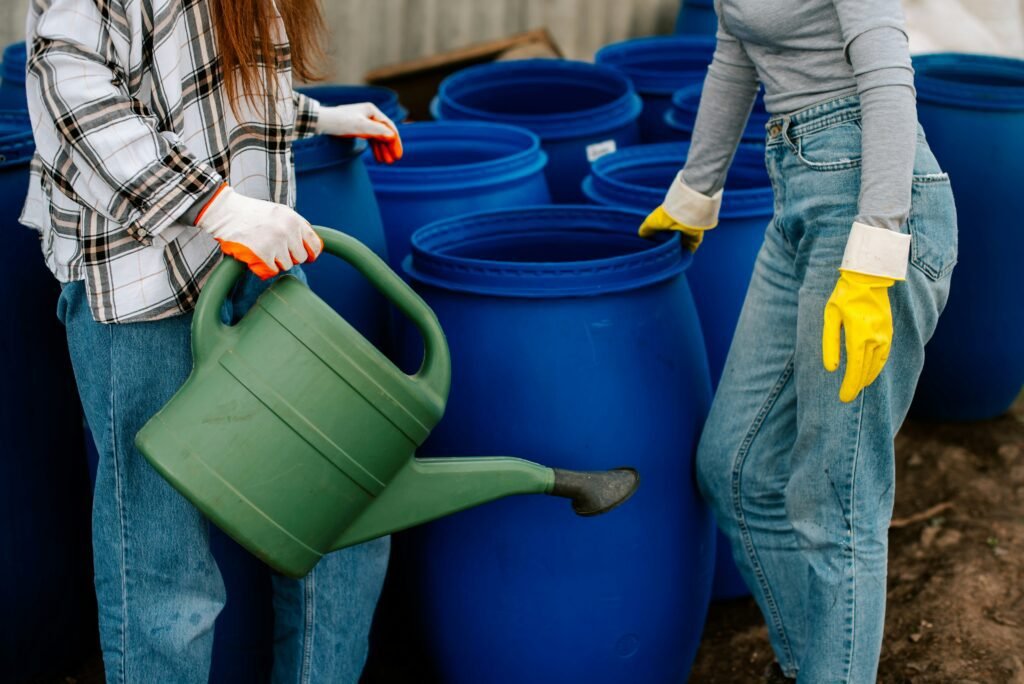
This isn’t about aesthetics — it’s infrastructure. Think less “Scandi chic,” more “punk squat but functional.” A home that refuses to leak is a home that resists. The revolution starts in the wiring, the pipes, and the drafty windows you ignore every winter.
Fashion: Stop Dressing for the Landfill
Fast fashion sold us novelty as identity. Wear it once, toss it, repeat. Polyester sheds plastic every wash, cotton guzzles water, and garment workers are underpaid into exhaustion.
It’s not just an environmental scam; it’s a cultural one. Fashion magazines and now TikTok hauls have trained us to feel shame about repetition. Entire industries exist to make you embarrassed about wearing the same shirt twice. That shame is manufactured — and profitable.
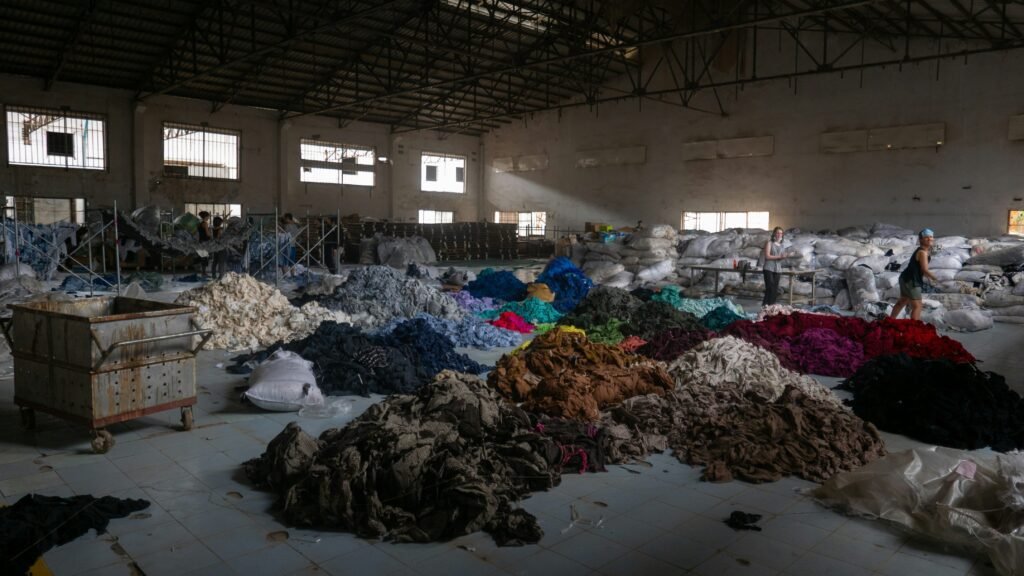
The counterculture fix:
- Wear the same outfit until it becomes your signature.
- Patch your jeans.
- Swap clothes with friends.
- Stop being embarrassed by repetition.
Yes, mushroom leather and pineapple textiles are cool. But what’s truly radical isn’t novelty. It’s outfit repetition as a middle finger to fast fashion.
And let’s not forget the lineage: punks tore up thrift stores and stitched identity out of safety pins and rips. Riot Grrrls sharpied their slogans across baby doll dresses. The DIY aesthetic wasn’t just rebellion — it was sustainability before the word got trendy. Wearing secondhand wasn’t a compromise; it was power.
“What’s truly radical isn’t mushroom leather — it’s wearing the same outfit three times a week and calling it power.”
Food: More Than Fuel, It’s Protest
Industrial agriculture bulldozes forests, drains aquifers, and locks farmers into debt. Your plate is political.
Food is also where community innovation thrives. Community-supported agriculture (CSA boxes) cut out middlemen and bring seasonal food directly from farmer to eater. Indigenous food sovereignty movements restore not just crops, but relationships between land and people. And punk kitchens have always known that scraps become soup, day-old bread becomes croutons, waste is a design flaw, not an inevitability.
- Regeneration over sustainability. Support farms that heal soil instead of “doing less harm.”
- Plant pivots. Swap a few meat meals for legumes, grains, mushrooms — not because it’s trendy, but because it works.
- Scrap culture. Compost, ferment, pickle, freeze. Waste isn’t inevitable; it’s designed. Break the design.
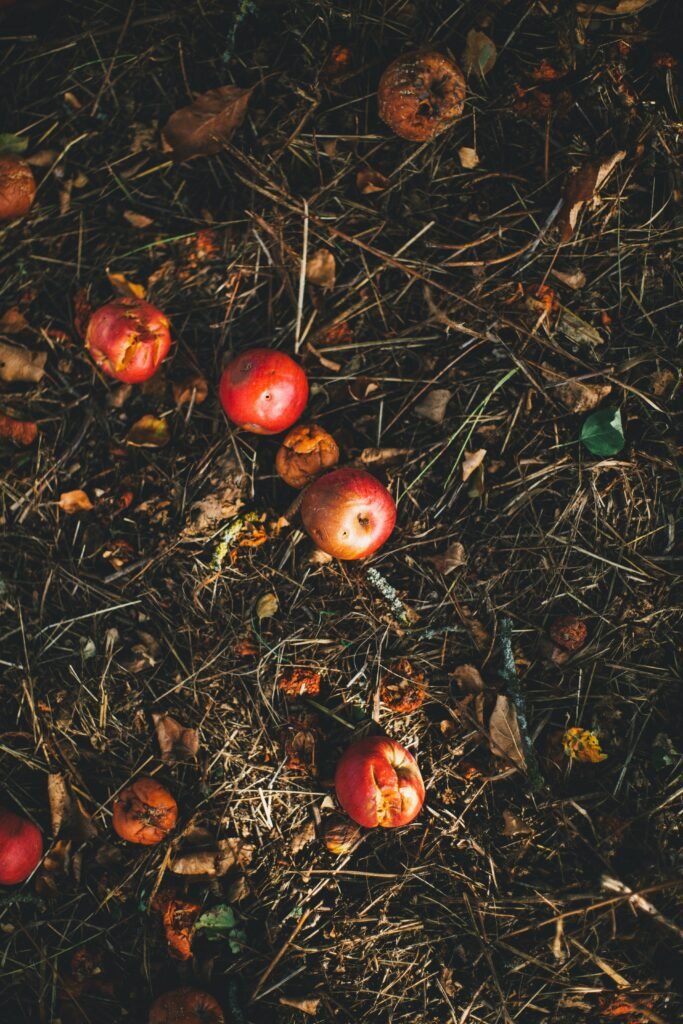
Your grocery bag is never just your own. It’s tied to aquifers, forests, and labour struggles. Every bite is a tiny protest or a passive endorsement. Food is where eco-living stops being aesthetic and starts being survival.
Cars Are the Biggest Con
We’ve been sold the idea that a car equals freedom. In reality, it equals clogged highways, oil wars, debt, and climate chaos.
The lie is baked into our culture: car commercials show sweeping mountain roads, not the reality of rush-hour gridlock. Billboards whisper “independence,” while banks trap us in loans and oil companies cash in. Suburban sprawl was engineered for cars, making it nearly impossible to live without one — by design.
EVs are fine, but they’re not the revolution. The revolution looks like this:
- Cities rebuilt around bikes, buses, and trains.
- Car co-ops instead of garages stuffed with SUVs.
- Walking treated as infrastructure, not afterthought.
Look at Copenhagen’s bike highways or Bogotá’s massive bus system — proof that car dependency isn’t inevitable. The more cities invest in collective freedom, the more the car looks less like a symbol of independence and more like an overpriced prison cell on wheels.
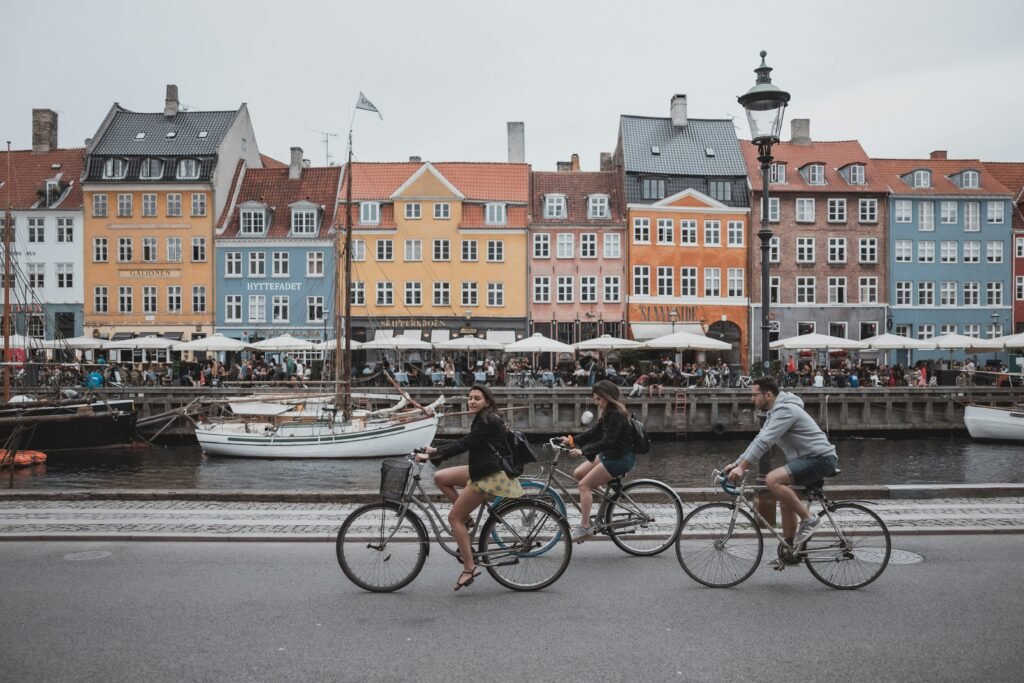
“The biggest eco-innovation isn’t an electric SUV — it’s a city where you don’t need a car at all.”
Tech: Delete to Save the Planet
Your phone feels weightless, but the cloud is heavy. Every binge-watch, every AI query, every “infinite storage” plan runs on massive servers that suck up water and energy.
Behind the screen are e-waste dumps in Ghana and India, where discarded laptops poison communities. Planned obsolescence ensures your phone “dies” every two years, pushing you back onto the upgrade treadmill. This isn’t innovation; it’s extraction disguised as progress.
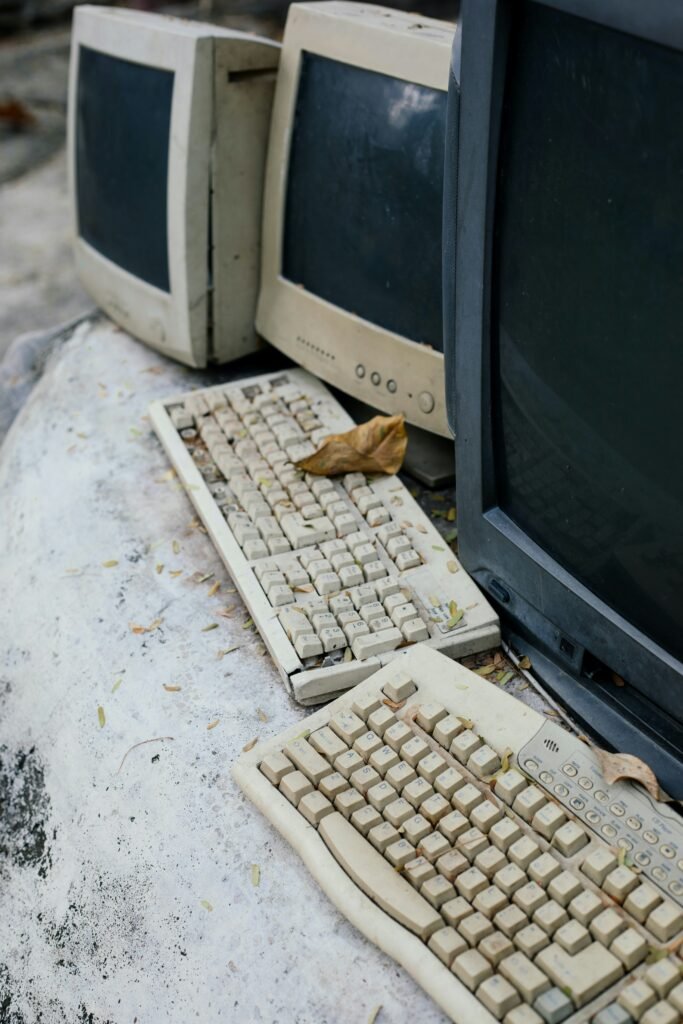
- Repair culture. Demand the right to fix, not replace.
- Digital minimalism. Delete old files. Unsubscribe from junk. Every kilobyte matters.
- Conscious hosting. Use renewable-powered servers and websites.
The rebellion isn’t in buying “green gadgets.” It’s in slow tech: keeping devices until they actually die, repairing them when possible, and remembering restraint is more radical than any shiny app.
Sometimes the most eco-friendly act is saying no. No to the upgrade. No to the infinite scroll. No to the idea that you need more storage, more bandwidth, more speed.
The “Small Stuff” That Isn’t Small
Toothbrushes, pads, laundry soap. Tiny in your hand, massive in scale. Billions of “small” choices become mountains of waste.
The eco-industry tries to sell luxury swaps — gold reusable straws, artisanal soap bars — but the real rebellion is cheap, boring, effective. Bamboo toothbrushes with replaceable heads. Menstrual cups and discs that cut landfill waste by thousands of pounds per user. Vinegar and baking soda that clean everything from drains to windows.
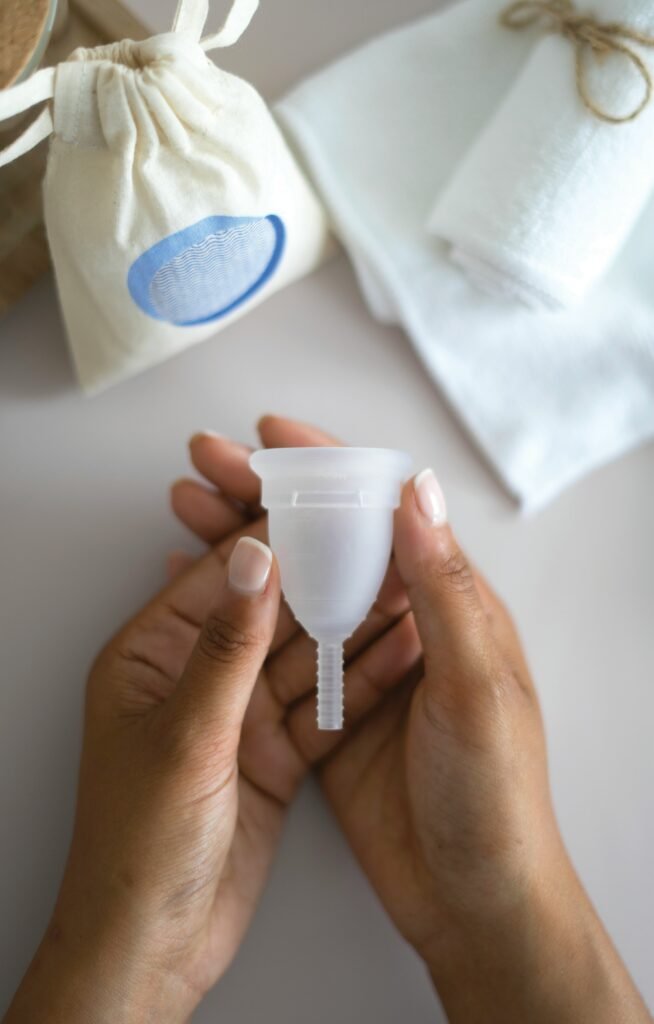
This isn’t just about consumption. Feminist movements remind us that period products are about bodily autonomy and access. When you shift to reusables, you’re not just cutting plastic — you’re cutting dependency on an industry that profits from waste and stigma.
Eco-friendly living isn’t glamorous. It’s repetitive, ordinary, boring. And that’s exactly why it works.
Community Hacks the System
The most powerful eco-innovation isn’t a gadget. It’s people refusing to do it alone.
Tool libraries mean one drill can serve a hundred homes. Repair cafés turn broken toasters into community gatherings. Swap meets replace malls with mutual aid. Urban land trusts protect spaces for gardens and co-ops. These aren’t fringe — they’re survival strategies that scale.
“Not my reusable straw. Our community garden. Not my compost bin. Our city program.”
When we collectivize sustainability, it stops being a personal burden and starts being culture. The eco-movement is strongest when it feels like a potluck, not a diet.
Burn the Greenwashing Fantasy
Here’s the danger: eco-friendly living gets sold back to us as luxury. Tesla as status symbol. $300 “sustainable” sneakers. “Green” mansions for the rich.
This isn’t new. BP invented the “carbon footprint” to shift blame from corporations to individuals. Fast fashion chains launch “conscious collections” while burning unsold stock. Brands rebrand disposability as “eco” because guilt sells just as well as novelty.
That isn’t innovation. That’s marketing. Real eco-living is cheap, accessible, and ordinary. If your solution requires wealth, it’s not saving the planet. It’s just exclusion in recycled packaging.
Liberation, Not Martyrdom
The eco-narrative built on guilt — don’t fly, don’t eat meat, don’t forget your tote bag — only works so long. Guilt paralyzes. Liberation motivates.
Eco-living means:
- Less debt.
- Less clutter.
- Less traffic.
- More time, more creativity, more community.
Talk to anyone who bikes instead of driving and they’ll tell you: it’s not a sacrifice, it’s joy. Talk to someone who composts and cooks scraps: it’s not deprivation, it’s creativity. Liberation is the real fuel.
This isn’t martyrdom. This is power.
The Future Is Already Here
Eco-friendly innovations aren’t hypotheticals — they’re alive now:
- France banned short-haul flights where trains exist.
- Canada is phasing out single-use plastics.
- Rwanda banned plastic bags more than a decade ago.
- Indigenous fire stewardship in Australia prevents catastrophic wildfires.
- The Netherlands built bike highways.
- Adidas is experimenting with recyclable sneakers.
- Toronto tool libraries are making repair normal.
The future is uneven, messy, alive. The question is whether you’ll watch passively — or push harder.
Innovation = Imagination
At the end of the day, the most powerful eco-friendly innovation is imagination. The courage to picture a life that doesn’t confuse novelty with freedom, doesn’t outsource destruction to someone else’s backyard, and doesn’t treat disposability as destiny.
Feminist sci-fi writers have already done this work — Octavia Butler, Ursula Le Guin — imagining systems beyond extraction. Punk zines have sketched worlds where DIY isn’t hobby, it’s survival. Afrofuturism has shown us how liberation looks when art and resistance merge.
It’s seeing yourself not as a consumer, but as a creator — of habits, of culture, of systems that care for life. That’s not sacrifice. That’s survival with style.
Where to Shop Without Getting Greenwashed
Here are some accessible, Canadian-forward resources that actually help you live it (without $300 hoodies):
🛒 General Zero-Waste & Eco-Living
- Well.ca (Canada-wide) – Bulk cleaning supplies, reusable period products.
- Greenmunch (Edmonton, AB) – Eco-friendly kitchen + packaging.
- Life Without Plastic (Québec) – Plastic-free pioneers.
🏠 Household & Cleaning
- The Green Jar (Toronto, ON) – Refill station.
- Bare Market (Toronto, ON) – Bulk refills with GTA delivery.
- Nada (Vancouver, BC) – Zero-waste grocery.
👕 Fashion & Textiles
- Kotn (Toronto, ON) – Ethically made basics.
- Encircled (Toronto, ON) – Multi-wear garments.
- Thrifted.ca (Canada-wide) – Secondhand, online.
🍳 Food & Kitchen
- Unboxed Market (Toronto, ON) – Zero-waste grocery.
- ChocoSol Traders (Toronto, ON) – Direct-trade chocolate.
- Nuts to You Nut Butter (Ontario) – Glass-packaged nut butters.
🌿 Wellness & Body
- Routine Cream (Calgary, AB) – Compostable natural deodorant.
- Elate Cosmetics (Victoria, BC) – Refillable bamboo-packaged beauty.
- DivaCup (Kitchener, ON) – Iconic reusable period care.
🛠 Community & DIY
- Toronto Tool Library (Toronto, ON) – Borrow instead of buy.
- Maker House Co. (Ottawa, ON) – Canadian-made goods with profits to community causes.
🚩 Red Flags: Fast fashion “eco” collections, overpriced “sustainable” gimmicks, luxury zero-waste branding.
Every Small Act is Rebellion
Your eco-lifestyle doesn’t have to be curated for Instagram. It can be messy, punk, handmade, shared. Refuse what you don’t need. Fix what you already own. Share what you can.
✦ Stop waiting for eco-perfection. Start where you are.
✦ Patch the jeans. Cook the scraps. Share the drill.
Join the New Girl Army of eco-disruptors:
→ Share your hacks, flops, and victories in the comments.
→ Tip the contributor through their bio link.
→ Drop a coin in the She Zine tip jar to fuel feminist media and keep our publication alive.
Every small act is rebellion. Every dollar keeps this work alive.
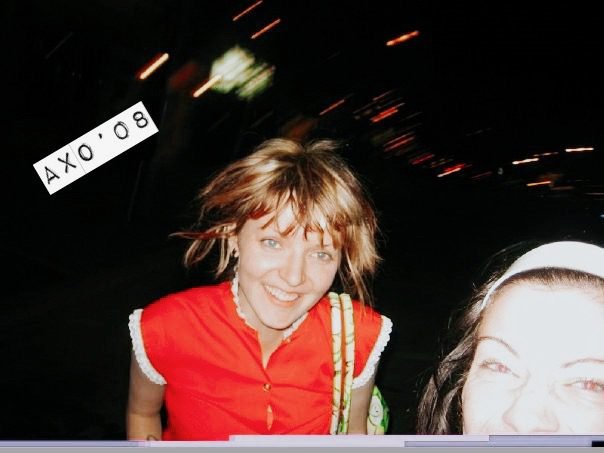
AXO (she/her) is a multidisciplinary creator, editor, and builder of feminist media ecosystems based in Toronto. She is the founder of She Zine Mag, Side Project Distro, BBLGM Club, and several other projects under the AXO&Co umbrella — each rooted in DIY culture, creative rebellion, and community care. Her work explores the intersection of craft, technology, and consciousness, with an emphasis on handmade ethics, neurodivergent creativity, and the politics of making. She is an advocate for accessible creativity and the power of small-scale cultural production to spark social change. Her practice merges punk, print, and digital media while refusing to separate the emotional from the practical. Above all, her work invites others to build creative lives that are thoughtful, defiant, and deeply handmade.








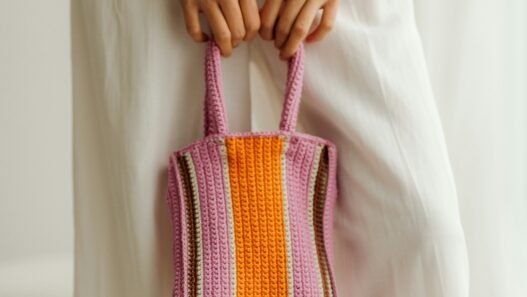





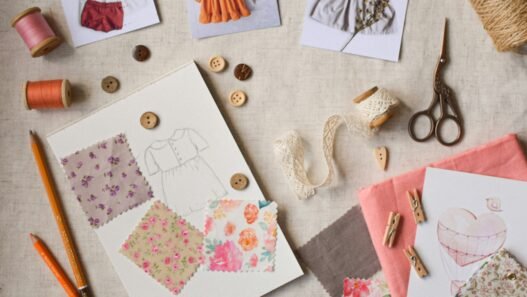




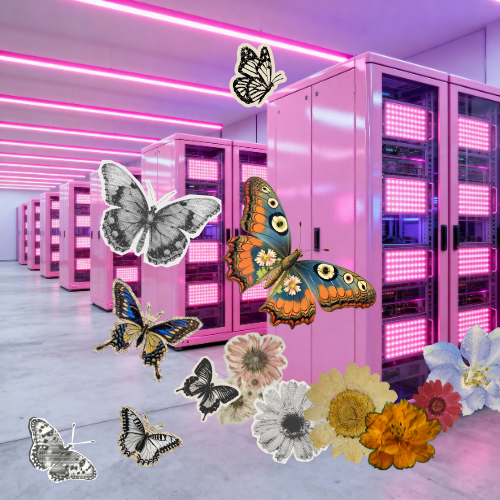
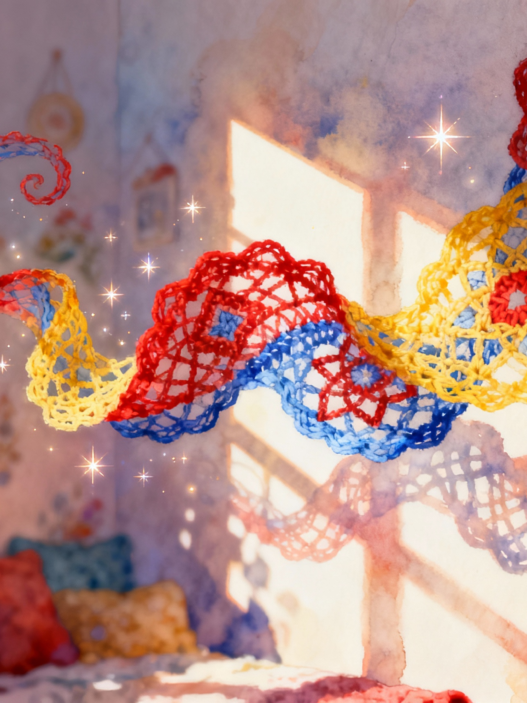
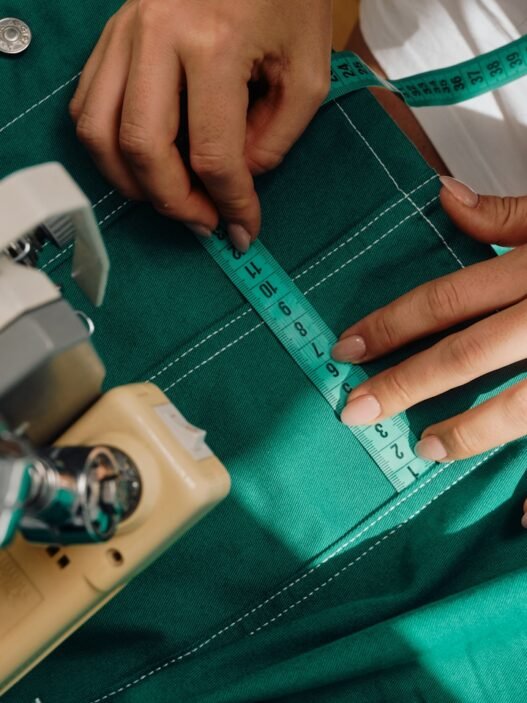
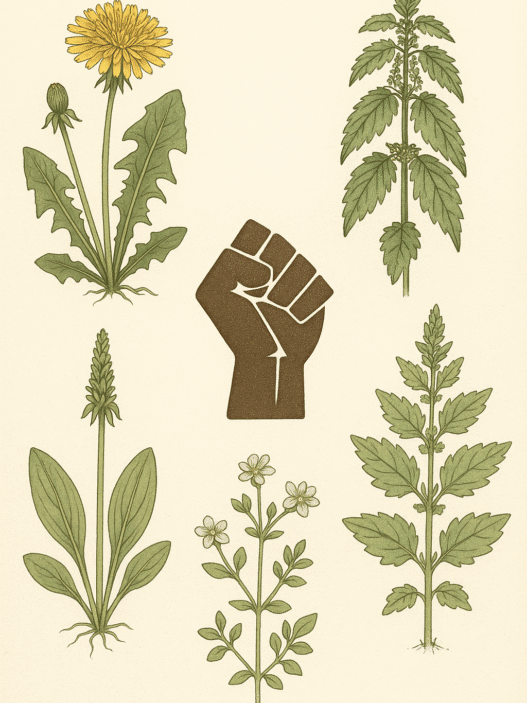




This post is a game-changer. I\’ve learned so much from it – thank you!
I\’m glad you enjoyed it! Your kind words inspire me to keep creating informative content.
I couldn\’t agree more! Your post is a valuable resource that I\’ll be sharing with others.
I\’m truly grateful for your support. Your positive feedback keeps me motivated.
Your insights in this post are spot on. I can\’t wait to see what you write next!